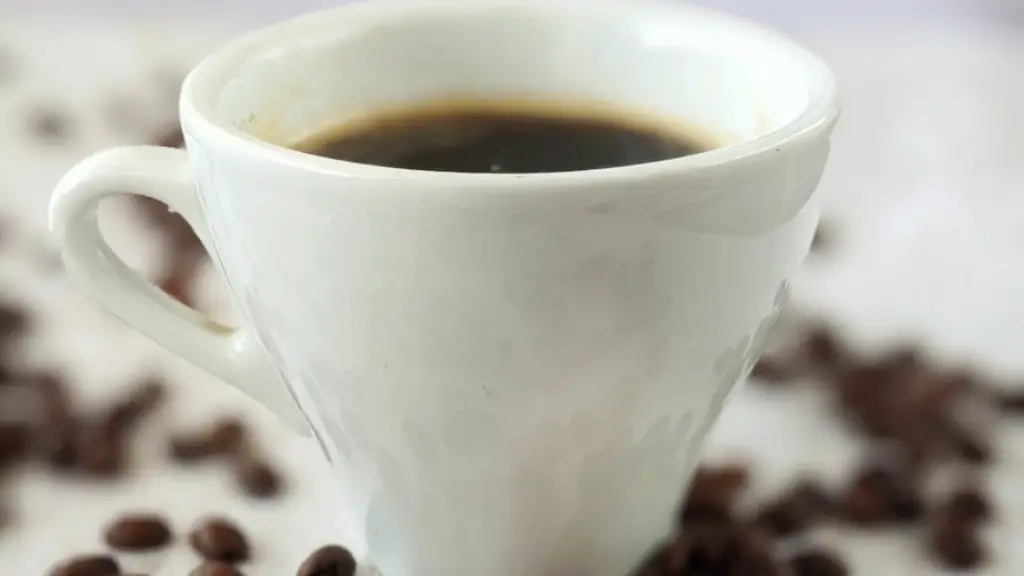Coffee, a steaming and fragrant morning or mid-day staple for many, is known to have stimulating effects on the human body. Commonly attributed to energy provided by caffeine and other compounds found in coffee, these stimulant effects are often worth debating. One of the debate’s most interesting topics is whether or not drinking coffee increases heart rate. In this article, we will explore the potential link between coffee and heart rate and present the perspectives of experts in the field.
Firstly, it is worth noting that the amount of caffeine per cup of coffee can vary greatly. For instance, a cup of brewed coffee can contain anywhere from 95 to 165 milligrams of caffeine, while a single shot of espresso may contain as much as 77 milligrams. On average, however, each cup of coffee contains approximately 95 milligrams of caffeine. It is also important to keep in mind that some individuals are more sensitive to the effects of caffeine than others and may be more likely to experience an increase in heart rate after consuming coffee.
Scientific Studies Exploring the LInk
In recent years, numerous scientific studies have sought to better understand the relationship between coffee consumption and heart rate. For instance, in 2016, a study published in the journal PLOS One examined the correlation between coffee drinking and heart rate in young adults. The study used data from the 2003-2006 US National Health and Nutrition Examination Survey. The results of the study indicate that regular coffee consumption (i.e.3 to 5 cups per day) is associated with an increased heart rate in adults under age 30. Conversely, it was found that drinking coffee infrequently (i.e., less than 1 cup per day) was not significantly linked with an overall increase in heart rate.
In another research project published in 2017, scientists explored the correlation between caffeine and heart rate in adults with pre-existing heart conditions. The research, published in the journal Frontiers in Physiology, found that consuming caffeine is associated with a short-term increase in heart rate in such individuals. The authors of the study suggest that patients with heart health concerns should be mindful of the potential consequences of drinking coffee and use caution when consuming caffeine.
How Caffeine Affects the Heart
According to experts, the reason why caffeine may have an impact on heart rate is due to the way it affects the body. When consumed, caffeine is absorbed into the bloodstream and makes its way to the brain. Once in the brain, it binds to adenosine receptors and blocks the activity of adenosine, a neurotransmitter associated with heart rate control. In addition, caffeine increases the release of other neurotransmitters that stimulate the central nervous system, such as norepinephrine and dopamine. This activation of the central nervous system can lead to an increase in heart rate and blood pressure.
Analysis and Insight
The current research indicates that drinking coffee is associated with an increase in heart rate in certain populations. While these effects may be minimal in healthy adults consuming coffee in moderation, individuals with pre-existing heart health concerns may need to be more conscious of their caffeine intake. Moreover, those sensitive to caffeine’s effects, including some young adults, may be at an elevated risk for an accelerated heart rate after drinking coffee. Therefore, it is important to keep in mind that all individuals respond to caffeine differently and discuss potential health concerns with a medical professional.
Other Factors That Affect Heart Rate
It is important to note that there are many factors that can influence heart rate in addition to caffeine. These factors can include age and physical activity, as well as mental health status, diet and lifestyle. Therefore, it is important to consider these potential influences when evaluating the impact of caffeine on heart rate.
The Benefits of Coffee
In spite of its potential to increase heart rate, coffee also has several beneficial properties. For instance, coffee is a source of antioxidants, which are important for overall health, and might even reduce the risk of certain diseases. Furthermore, regular coffee consumption has been associated with a variety of positive digestive effects, including a decreased risk of chronic gastrointestinal conditions such as irritable bowel syndrome. It has even been found to reduce the risk of type 2 diabetes, depression and certain types of cancer.
Expert Advice
When looking to examine the potential effects of coffee on heart rate, it is always good to seek advice from qualified medical professionals. Doctors can help individuals identify potential risks associated with caffeine consumption and offer personalized strategies for achieving overall health and wellbeing. Furthermore, medical experts may also be able to suggest alternative ways to obtain the potential benefits of coffee without increasing heart rate.
Flavored Coffee Alternatives
Another option for coffee enthusiasts looking to lower their caffeine intake is flavored coffee alternatives. These coffee alternatives are made with low-caffeine coffee beans, as well as natural sweeteners, flavors and spices such as cinnamon, cardamom and vanilla. These coffee alternatives can help reduce the amount of caffeine in a cup of coffee, as well as provide variety to a daily coffee routine.
Conclusion
In conclusion, there is a potential link between coffee and heart rate, with several scientific studies pointing to the possibility of a correlation. While coffee drinking is associated with a variety of positive effects, it is important to recognize the potential risks associated with caffeine consumption and seek advice from a medical professional. Furthermore, there are options for coffee drinkers looking to reduce caffeine intake, such as flavored coffee alternatives. In any case, further research is needed to better understand the potential effects of coffee on heart rate.


